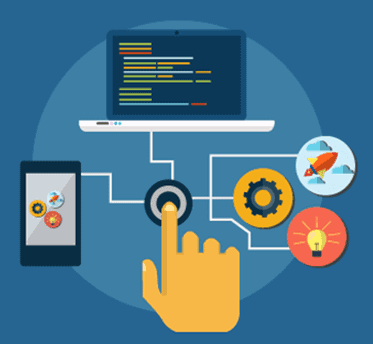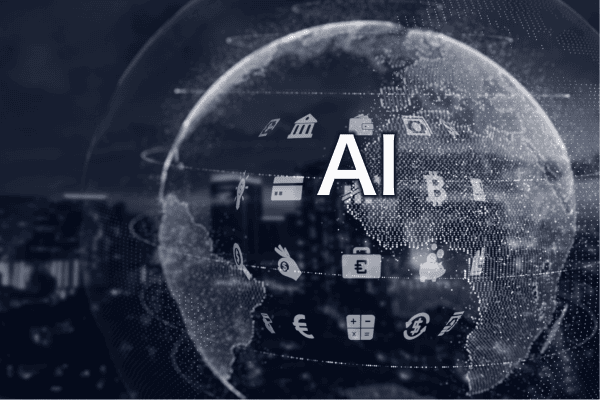The evolution of data-driven strategies has transformed the field of marketing analytics, and at the helm of this revolution is Artificial Intelligence (AI). With its unparalleled ability to process large volumes of data and gain valuable insights, AI is revolutionizing the way businesses strategize their marketing initiatives. This article delves into the changing landscape of marketing analytics through the lens of AI, examines the applications of AI in various Google entities, and peers into the future of AI in marketing analytics. It further provides advice for business readiness toward AI adoption and emphasizes the importance of ethical considerations and continuous learning in this domain.
Introduction to AI for Marketing Analytics
Artificial Intelligence (AI) is transforming the landscape of marketing analytics, empowering businesses to make data-driven decisions like never before. AI tools for marketing analytics are becoming indispensable for companies aiming to understand customer behavior and optimize their marketing efforts. From enhancing customer care to boosting the efficiency of marketing functions, AI technology offers unprecedented advantages.
In this digital era, where data is plentiful, AI marketing tools are pivotal in processing vast amounts of information rapidly. These tools not only automate repetitive tasks but also provide deep insights into customer data. Whether it’s through sentiment analysis or trend prediction, AI marketing tools are reshaping how businesses approach their marketing strategy.
Definitions: AI, Marketing Analytics
AI, or artificial intelligence, refers to the simulation of human intelligence in machines. These machines are designed to think like humans and mimic their actions. In marketing analytics, AI can analyze customer data, predict behavior, and automate various marketing tasks.
Marketing analytics, on the other hand, involves studying data to evaluate marketing campaigns’ performance and determine their ROI. By integrating AI, marketing analytics can now move beyond traditional data analysis, providing deeper and more actionable insights.
Emerging Role of AI in the Digital Marketing Landscape
The emergence of AI in digital marketing has been a game-changer. AI tools now play a critical role in various marketing functions, from content creation to email marketing. By leveraging AI, businesses can understand and predict customer behavior across multiple channels, leading to higher conversions and improved customer experiences.
AI marketing tools are revolutionizing customer interactions, enabling marketers to deliver personalized content and messages at scale. Such tools analyze social media and web pages, offering valuable insights that inform marketing strategies.
AI vs Traditional Marketing Analytics: An Overview
Traditional marketing analytics often relies on historical data and manual analysis, which can be time-consuming and prone to errors. AI marketing, on the other hand, uses machine learning and data analysis to provide real-time insights, automate tasks, and predict future trends. This shift allows for more accurate and agile marketing decisions.
For example, AI tools can perform sentiment analysis and web scraping without human intervention, offering a more precise understanding of market sentiments and customer preferences. This results in marketing efforts that are more aligned with customer expectations and demands.
Detailed Analysis of Top Google Entities and AI Applications
Google offers a suite of AI-powered tools designed to optimize marketing analytics. From Google Analytics to Google Ads, these platforms harness AI to provide deeper insights into customer behavior, campaign performance, and market trends. Let’s explore some of these key tools and their applications.
Google Analytics and AI: Optimizing Your Data
Google Analytics is a powerful platform that, when combined with AI, can transform raw data into actionable marketing insights. AI in Google Analytics enables automated insights, custom alerts, and predictive analytics, helping marketers make informed decisions. This data-driven approach ensures that businesses can optimize their web pages for higher engagement and better customer experiences.
With the integration of AI, Google Analytics now offers features like anomaly detection and automated insights, which promptly notify marketers about significant changes in data patterns. This promptness helps in quickly adjusting marketing strategies for better results.
Google Search: Harnessing AI for Effective Ad Campaigns
Google Ads uses AI to maximize ad performance through automated bidding, targeting, and ad creation. This empowers marketers to focus on strategy rather than manual campaign adjustments. AI algorithms analyze past performance and market trends to optimize campaigns for higher conversions within budget constraints.
Moreover, AI in Google Ads also assists in identifying the most effective ad combinations, enabling marketers to deliver personalized ads at scale. This sophistication ensures that each ad reaches its intended audience with the right message at the right time.
Google Trends: Gleaning Insights from Search Patterns
Google Trends utilizes AI to analyze search query data across Google, revealing how search queries evolve over time. Marketers can use these trends data to understand consumer interests and adapt their content strategies accordingly. This tool is invaluable for tapping into the zeitgeist, ensuring that marketing efforts match current consumer sentiments.
By analyzing Google Trends data, marketers gain insights into which topics are gaining popularity, guiding content creation and marketing strategies to align with user interests. These insights can drive decisions on everything from product development to content marketing themes.
Google Cloud: Enhancing Data Processing with AI
Google Cloud offers cutting-edge AI and machine learning capabilities that enhance data processing and analysis. With powerful data analytics and AI tools, marketers can process large datasets at high speeds, enabling the extraction of meaningful insights from customer data.
This leads to a deeper understanding of customer behavior and preferences, allowing for the creation of more targeted and effective marketing strategies. By using Google Cloud, businesses can automate complex data analysis tasks, making marketing analytics more efficient and insightful.
Google AI Hub: Centralized Repository for AI and ML Applications
The Google AI Hub serves as a centralized platform where developers and marketers can access various AI and machine learning tools. This hub simplifies the search for AI solutions tailored to specific marketing needs, from analyzing customer interactions to automating email marketing campaigns.
By offering a wide range of AI tools and resources, the AI Hub enables marketers to implement AI-driven marketing strategies without needing extensive coding skills. This democratization of AI in marketing paves the way for more innovative and effective marketing solutions catering to firms of all sizes.
As businesses continue to navigate digital transformation, the role of AI in marketing analytics will only grow stronger. By understanding and leveraging these Google entities and AI applications, marketers can enhance their strategies, driving better business outcomes through data-driven insights and automation. The future of marketing lies in the smart integration of AI tools, where every decision is informed by deep data analysis and insights, paving the way for more personalized and impactful marketing engagements.
The Future of AI in Marketing Analytics
The future of marketing analytics is being reshaped by Artificial Intelligence (AI), Machine Learning (ML), and predictive analytics. These technologies combine to form a powerful trio that can analyze vast amounts of data, predict trends, and personalize customer interactions like never before. Businesses that harness these capabilities can create more targeted marketing strategies, improve customer experiences, and ultimately, boost their bottom line.
AI tools for marketing analytics are becoming more accessible, allowing even small businesses with budget constraints to leverage advanced data analysis. This democratization of technology means that AI-driven marketing is no longer just the playing field of large corporations but is now available to a wider range of marketers aiming to make data-driven decisions.
Predictive Analytics, Machine Learning and AI: The Perfect Trio
Predictive analytics, machine learning, and AI work together seamlessly to provide valuable insights into customer behavior, market trends, and the effectiveness of marketing strategies. Predictive analytics uses historical data to predict future outcomes, machine learning algorithms learn from this data to find patterns, and AI applies these insights to make informed decisions and automate marketing tasks. This trio is transforming how businesses approach customer data and marketing strategy.
- Predictive Analytics: Enables marketers to forecast customer needs and preferences.
- Machine Learning: Continuously improves predictions and strategies based on new data.
- AI: Automates actions based on these predictions, optimizing marketing efforts across multiple channels.
Together, these technologies allow for more precise targeting, customized content creation, and more efficient use of marketing budgets. Businesses adopting this trio see higher conversions and a better understanding of their customer base.
AI-Driven SEO Strategies: Working with Google’s Algorithm
AI marketing tools, especially those geared towards SEO, are revolutionizing how businesses rank on search engines. By analyzing patterns in Google’s algorithm, AI tools can suggest changes to web pages, blog posts, and online content to improve search engine visibility. This leads to more organic traffic, higher engagement rates, and, ultimately, increased sales.
AI-powered platforms offer insights into how to optimize content for Google’s ever-evolving algorithm. These platforms analyze data from Google Trends, customer interactions on social media, and the effectiveness of previous marketing campaigns to provide recommendations for future strategies. Some key features include:
- Sentiment analysis to gauge customer reactions.
- Content tips to boost relevance and engagement.
- Custom pricing options based on budget and goals.
By utilizing AI in SEO strategies, marketers can stay ahead in the competitive digital landscape and ensure their content reaches the right audience at the right time.
Challenges and Opportunities for AI Adoption in Marketing
While the advantages of AI in marketing are clear, its adoption comes with challenges. Issues such as data privacy concerns, the need for skilled personnel to manage AI tools, and initial setup costs can be significant hurdles. However, these challenges also present opportunities for innovation and growth within the marketing industry.
For instance, the concerns around data privacy are pushing developers to create more secure AI marketing tools that prioritize customer data protection. Similarly, the demand for skilled AI professionals is leading to an increase in educational opportunities in this field, equipping more people with the skills needed to navigate the AI-driven marketing landscape.
Moreover, AI offers the potential to automate repetitive tasks, allowing marketing teams to focus on creative and strategic aspects of their jobs. This not only enhances job satisfaction but also leads to more innovative marketing approaches.
Conclusion: Harnessing AI Power for Strategic Marketing
As we move towards a future dominated by digital transformation, harnessing the power of AI in marketing becomes critical. Businesses ready to integrate AI into their marketing strategies will have a significant competitive advantage. The key is to start small, focusing on one or two areas where AI can have the most immediate impact, such as customer data analysis or automated email marketing campaigns.
Investing in AI marketing tools and platforms now can set the groundwork for more sophisticated AI applications in the future, enabling businesses to stay ahead of the curve in understanding and meeting customer needs.
Ready Your Business for AI Transformation
To ready your business for AI transformation, begin by evaluating your current marketing technologies and strategies. Identify areas where AI can provide the most benefit, such as improving customer care or enhancing sentiment analysis. Then, gradually integrate AI tools into these areas, constantly reviewing and optimizing based on results.
It’s also important to educate your team about AI and its potential impact on your marketing functions. Encouraging a culture of innovation and continuous learning can help your team adapt more quickly to AI tools, ensuring a smoother transition.
Ensuring the Ethical Application of AI in Marketing
As businesses explore AI’s capabilities in marketing, it’s crucial to do so ethically. This means being transparent about how customer data is collected and used, ensuring AI decisions do not discriminate or bias, and being mindful of customer privacy at all times. Ethical AI practices not only build trust with your customers but also protect your business from potential legal and reputational risks.
To ensure ethical AI use, businesses should adhere to data protection laws, invest in secure AI technologies, and commit to ethical guidelines governing AI applications in marketing. Regular audits and updates to these practices can help maintain ethical standards as AI technologies and marketing strategies evolve.
Continuing the Journey: Lifelong Learning in AI and Marketing Analytics
The landscape of AI and marketing analytics is constantly evolving, with new technologies and applications emerging at a rapid pace. To fully harness the power of AI in marketing, businesses must commit to ongoing learning and adaptation. This involves staying up-to-date with the latest AI developments, experimenting with new AI marketing tools, and continuously refining marketing strategies based on AI insights.
Whether it’s through formal education, online courses, or hands-on experimentation, the key to success in AI-driven marketing is a lifelong commitment to learning. By embracing AI’s potential and continuously adapting to its advancements, businesses can unlock new levels of marketing success.






